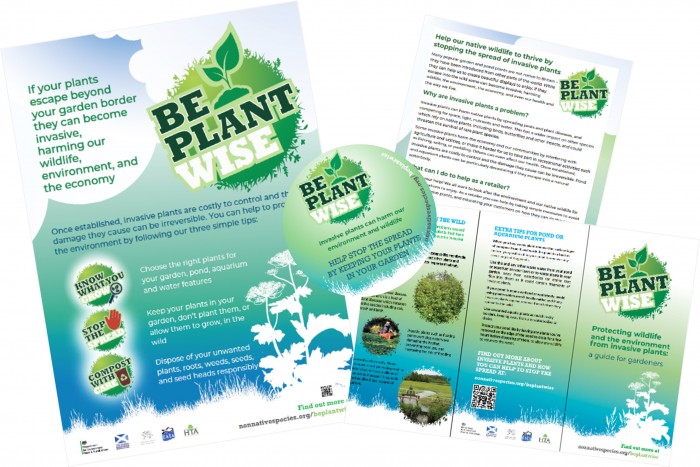Free awareness raising materials
All of the materials below are freely available for you to download and share with others. Email us if you would like free hard copies.
Retailers can request a general Be Plant Wise pack for your business. If you sell aquatic plants we have a Be Plant Wise aquatic pack.
Funding for Be Plant Wise
All Be Plant Wise materials developed and printed by the NNSS are funded by a group of nine water companies through the Aquatic Biosecurity Partnership.

Be Plant Wise materials
Leaflets
- Garden plants leaflet | Garden plants leaflet: Welsh
- Aquatic plants leaflet | Aquatic plants leaflet: Welsh
Guides to alternative species to use in place of invasive non-native plants:
Posters
- Garden plants poster | Garden plants poster: Welsh
- Aquatic plants poster | Aquatic plants poster: Welsh
Other materials
- Information sheet for retailers | Information sheet for retailers: Welsh
- Pop up banner for events and displays
- Be Plant Wise logos can be used in your own communications with our approval, please contact us to request these.
- Resources for social media.
Useful links
Choosing plants
If you are buying plants online, it’s a good idea to research them to make sure they are suitable for your garden or pond, and won’t be difficult to look after or dispose of. It's illegal to sell or share certain plant species, view details of restricted non-native plants.
Below are some websites and other resources you can use when deciding which plant to choose.
- RHS Plantfinder
- UK and Ireland Sourced and Grown scheme If you are sourcing trees, this scheme from The Woodland Trust guarantees that the trees you purchase have not been imported and they and their compost will not contain material or seed from new invasive species.
Help to prevent future invasions
You can help to prevent future invasions simply by reporting plants which are spreading in your garden and proving hard to control. Plant Alert, a citizen science project led by the Botanical Society of Britain & Ireland, asks gardeners to help to identify which species are likely to become a problem in the wild in the future. Read more about Plant Alert.
Other sources of information:
- Record suspected sightings of non-native species
- The Flatworm Code of Practice (PDF) contains information on preventing the spread of non-native flatworms if you suspect you have these in your garden. You can report sightings of flatworms to Buglife’s flatworm survey.
- Report plant pests and diseases on the Plant Health Portal
- Guidance on managing non-native plants
- Non-native species legislation
- Identification guides for a number of non-native species
- Database of information on non-native species
- Ornamental Aquatic Trade Association
- Horticultural Trades Association
